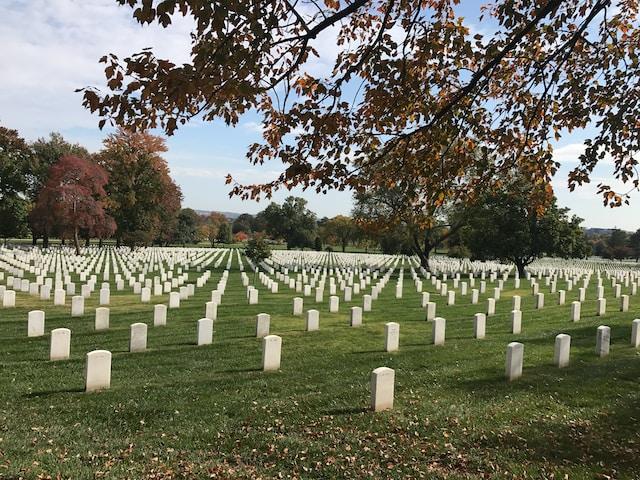There are many people who work in hospitals who claim to hear things, see ‘ghosts’ and experience unusual sensations. How do we explain this?
Newsroom (17/05/2023 18:00, Gaudium Press) In recent months, I have witnessed the death of five people close to me. The first was a 51-year-old friend, apparently healthy, full of cheer and plans for life. She had a headache and went to the emergency room; it was an aneurysm. She died two days later. Next was the wife of a work colleague, a young woman of 22, who left behind a three-year-old son. She was doing well when, one Sunday, she became unwell and also went to the emergency room. She also had to be hospitalized. She spent a week in hospital, getting worse every day; she went into deep anaemia and died without the doctors coming up with a diagnosis – they could only say that she was affected by an autoimmune disease, which opens up a range of possibilities, but nothing concrete.
Two friends have died of cancer. One was in his 70’s, but very jovial. He had a business and worked every day, from Sunday to Sunday, from early morning to eight o’clock in the evening. He was a man of good character and a good heart, esteemed by all. The other was a renowned intellectual, a leading figure in his field, who had just turned 50. The fifth was 41, who was suffering from depression and took his own life.
All these deaths happened very close together, and no sooner had I recovered from mourning one than another was happening. This has made me reflect very deeply on the meaning and brevity of life and to ask myself: if death is the only certainty we have, why are we never prepared for it, be it the death of people we love or our own death?
A phrase has been present in my thoughts, the second part of the prayer of the Hail Mary: “Pray for us sinners, now and at the hour of our death”. It is common that, when we pray, we ask for present things, for our desires, our needs, for peace in the world, for someone who needs help. However, in the Hail Mary, we extend our request for protection to Our Lady not only now but also at the hour of our death.
What happens at the hour of our death?
After all, I do wonder what happens at the hour of our death. Is it possible to prepare for it? Or, even if we are pious people, living a life of prayer and good deeds, will it be difficult for us to face it and be prepared to accept it?
I believe that the first obstacle is precisely not knowing when the time of our death will be. On the other hand, perhaps this knowledge would not help us much, and could even make us anxious and worried, making things worse. But, speaking coldly of it, knowing that we can be caught by death at any moment, in any space, even while we sleep, is still distressing and reminds us of our insignificance and our complete ignorance of the mysteries of life.
Speaking about death has always been taboo, an uncomfortable subject. Until a few years ago, when a person had cancer, for example, it was common for the doctor to tell the bad news to someone in the family, but not the patient, leaving it up to family members to decide whether or not to tell the person that he or she had that “bad disease”, which was seen as synonymous with death.
Although there are several types of cancer that are curable, especially when diagnosed early, this is still one of the diseases that kills most people in the world. Treatments have become less aggressive, new drugs have been tested and the medical approach has changed radically. Today there are palliative doctors who treat people who have no cure, seeking to give them comfort and quality of life, and to talk openly about death. With this, those affected by incurable diseases are treated with dignity and can make important decisions about their lives, their families and their businesses. And, ideally, they should also make assertive decisions about their spiritual life…
Is it possible to cheat death?
Death has its designs, which are not always easy to understand. During the pandemic, we saw the death of young and healthy people, without the so-called comorbidities, and we witnessed the illness and cure of elderly people, some over 100 years old, many with serious pre-existing health problems.
Many may remember a case that happened in 2019 and widely reported in the press: a man with terminal cancer who agreed to volunteer for a so-called revolutionary treatment. Vamberto Luiz de Castro had a very aggressive lymphoma in his bones and was already terminally ill when he volunteered for treatment with the gene therapy known as CART-Cell, at the Hospital das Clínicas in Ribeirão Preto, in the interior of São Paulo.
Mr. Vamberto’s cure was rapid and sparked the enthusiasm of the team of doctors and scientists leading the experiment, and his case became known worldwide. However, only two months after the cure had been proven, he suffered a domestic accident, fell, suffered cranial trauma, and died. A case that perhaps confirms the popular wisdom that states that it is impossible to avoid death: when your time comes, one way or another, it comes. This does not mean that we should be negligent and not treat or care for ourselves, but that God’s designs are far above our understanding and that life and death belong to Him.
Death almost always catches us unprepared
Speaking with priests who attend to patients in hospitals or even at home, when they are already disillusioned by doctors, the priests say that one of the most difficult things is to find someone who is, in fact, prepared for death. People are transformed by the possibility of dying. Whether they are selfish and materialistic or good and altruistic, they generally depart from their normal state at the prospect of a forthcoming departure.
There are those who do not even accept the presence of a priest, often called by the family, when death is imminent. And, in other cases, it may be the patient who wants to speak to a priest, to go to Confession and receive the Sacraments, but the family does not accept this wish, because they want the person to live and may have the misleading impression that the priest’s visit brings a bad omen and hastens death.
Obviously, this is not true and is an unfounded fear. There are cases when the sick person has been in agony for a long time and the presence of a priest helps to reassure him, and death occurs serenely, just as there are cases of people who are about to die, receive the Anointing of the Sick and are inexplicably healed.
The function of the priest’s visit, however, is neither to cure the person nor to hasten death. The priest, by offering the Anointing of the Sick, the possibility of Confession and the Holy Eucharist to those who are still able to receive these two sacraments, is fulfilling his role as servant of God and collaborating so that the will of God is accomplished. If people knew the importance of this encounter with God, coming through the visit of a priest, many would behave different
Hospital stories
From time to time, some stories told by doctors, nurses and first-aiders, especially those who work in ICU’s or with terminally ill patients in general, are often shared on the internet. For many, these stories may seem exaggerated, but due to the trustworthiness of the people who share these reports, they deserve to be taken into consideration.
It is common to hear about cases of devices that seem to gain the ability to turn on or off by themselves; patients who claim to have been “warned” that their time has come and adopt a calm posture, who say goodbye to people and die peacefully. There are also those who become desperate and afraid, and report seeing enemies or frightening shapes, becoming agitated, and claiming they do not want to die.
There are many stories of people who enter a state of tranquillity, serenity and peace, even when facing a lot of pain, claiming to see something that human eyes cannot reach, some energy, some picture that they cannot describe or even Angels and people who seem to have come for them.
Among the reports of health workers, there are many who claim to hear things, see shadows and feel unusual sensations such as chills, a tearing apart, a sense of unease and fear, or benign and harmonious feelings. What is the explanation for this?
For non-believers, death is the end of life
Unfortunately, many do not believe and, for those who do not believe, death is just the end of life, without any perspective or hope of continuity. It must be very sad and desperate to die like that, to see death approaching in this mental condition.
However, for those who believe, those who have lived their lives well and are in communion with God, death should not be viewed with dread and fear, it should not be seen as an enemy, but rather as a door, a bridge, a transition between Heaven and earth, between this life and the true life.
We should live as if we will never die – and we will not, because our soul is immortal – but at the same time being prepared to die, because death can come at any moment. In his book ‘Preparation for Death’, St. Alphonsus Mary de Liguori tells us, “Consider the divine commandments, recall the offices and occupations you have had, the friendships you have cultivated, note your faults and make – if you have not already done so – a General Confession of your whole life… O how much a General Confession contributes to putting a Christian’s life in good order!”
But when should we make this General Confession? Only when we are sick or older? No! Make it now, for death may surprise you during your sleep tonight or be waiting for you tomorrow morning. The time to put your life in order is now. Do not wait for a tomorrow that may never come.
The difficulty of now is the impossibility of the moment of death
St. Alphonsus goes on to say: “See to it that this account will serve for eternity, and try to settle it as if you were standing before the tribunal of Jesus Christ. Put away from your heart every evil affection and every rancour or hatred. Put aside every cause for scruple about the property of others, about a damaged reputation, about scandals given, and firmly propose to flee from every occasion when you might lose God. Think that what seems difficult now will seem impossible at the moment of death. What matters most is that you resolve to put into practice the means of preserving God’s grace.”
Therefore, let us live well, let us put things in order, let us be aware of the fleetingness of life and, above all, let us not forget to have recourse to Mary, whom God, by His infinite goodness, has given us as our intercessor and support at the hour of our death. Let us ask Her for this every day, several times a day, and, very probably, whatever the day and the reason for our death, She will be at our side, holding our hand, ready to take us to Heaven, if we have so merited it.
By Afonso Pessoa
Compiled by Sandra Chisholm

































